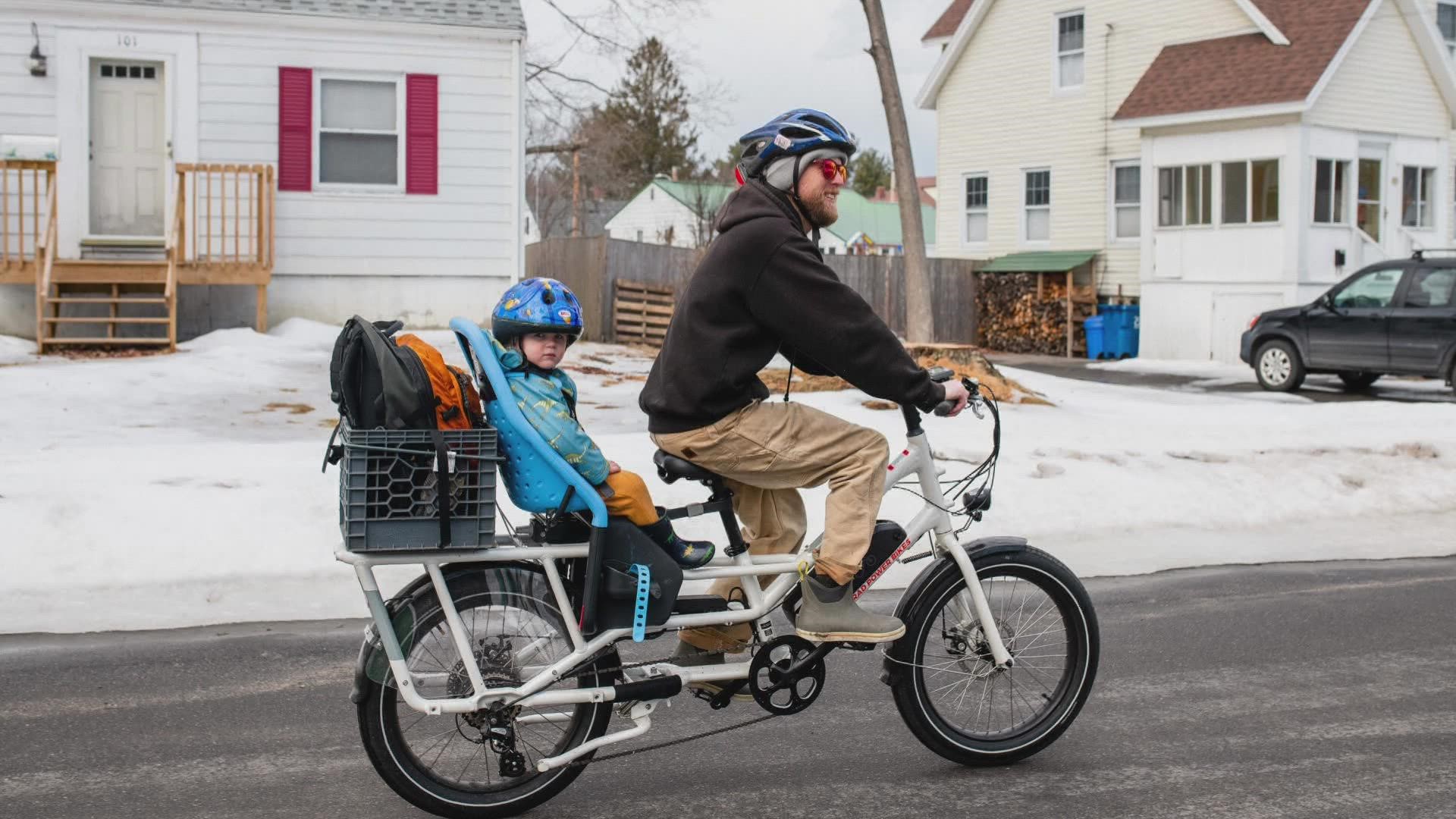SOUTH PORTLAND, Maine — Although Dave Cohen recently moved to Maine, he still works as director of VBike, a nonprofit “dedicated to shifting the bike and bike culture in Vermont towards a far more inclusive, fun, and transportation-oriented future.”
VBike has a special focus on promoting electric bikes, and Cohen has already seen how e-bikes have become significantly more popular in just the last two or three years.
“When I first started out in Vermont with this project, people would look at my cargo bike—which was a big bike and had an e-assist on it—and go, ‘That’s an interesting thingamajig with a doohickey on it,’" he said. "Now they go, ‘Oh, it’s a cargo bike. It’s a longtail cargo bike. You have a mid-drive motor.’ Their knowledge base has shifted.”
Some people might be skeptical of the term “cargo bike,” but it’s no misnomer. These bikes are work horses, not show horses, and they’re fully capable of carrying loads weighing hundreds of pounds.
“I’ve carried things you just wouldn’t believe,” Cohen says. “Furniture, refrigerators—and literally having a blast doing it.”
States and municipalities will need to play a role in promoting the use of e-bikes, according to Cohen, through better infrastructure such as bike lanes, and financial incentives.
Some of those incentives are substantial. Denver, for example, is offering $1200 to low-income families who buy an e-bike.
So how is Maine doing in encouraging the use of e-bikes? Cohen is less than impressed.
“I think Maine is pretty far behind,” he said. “Maine is just behind the curve at this point.”

